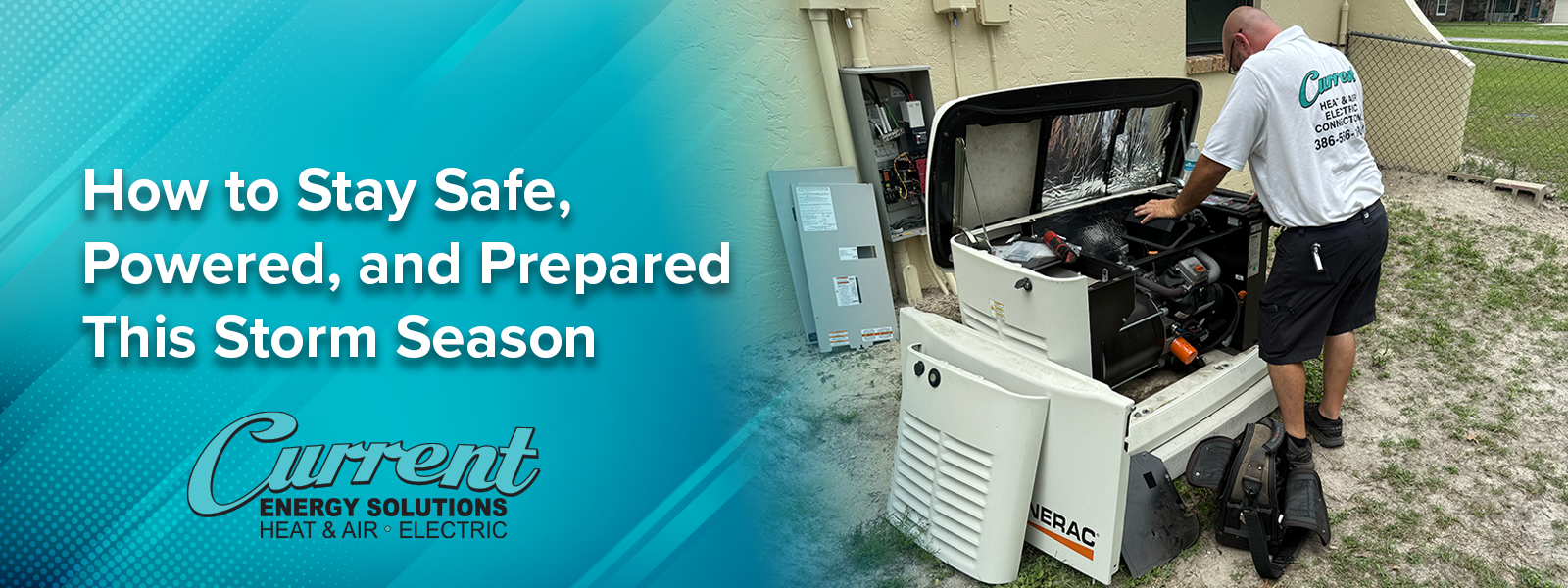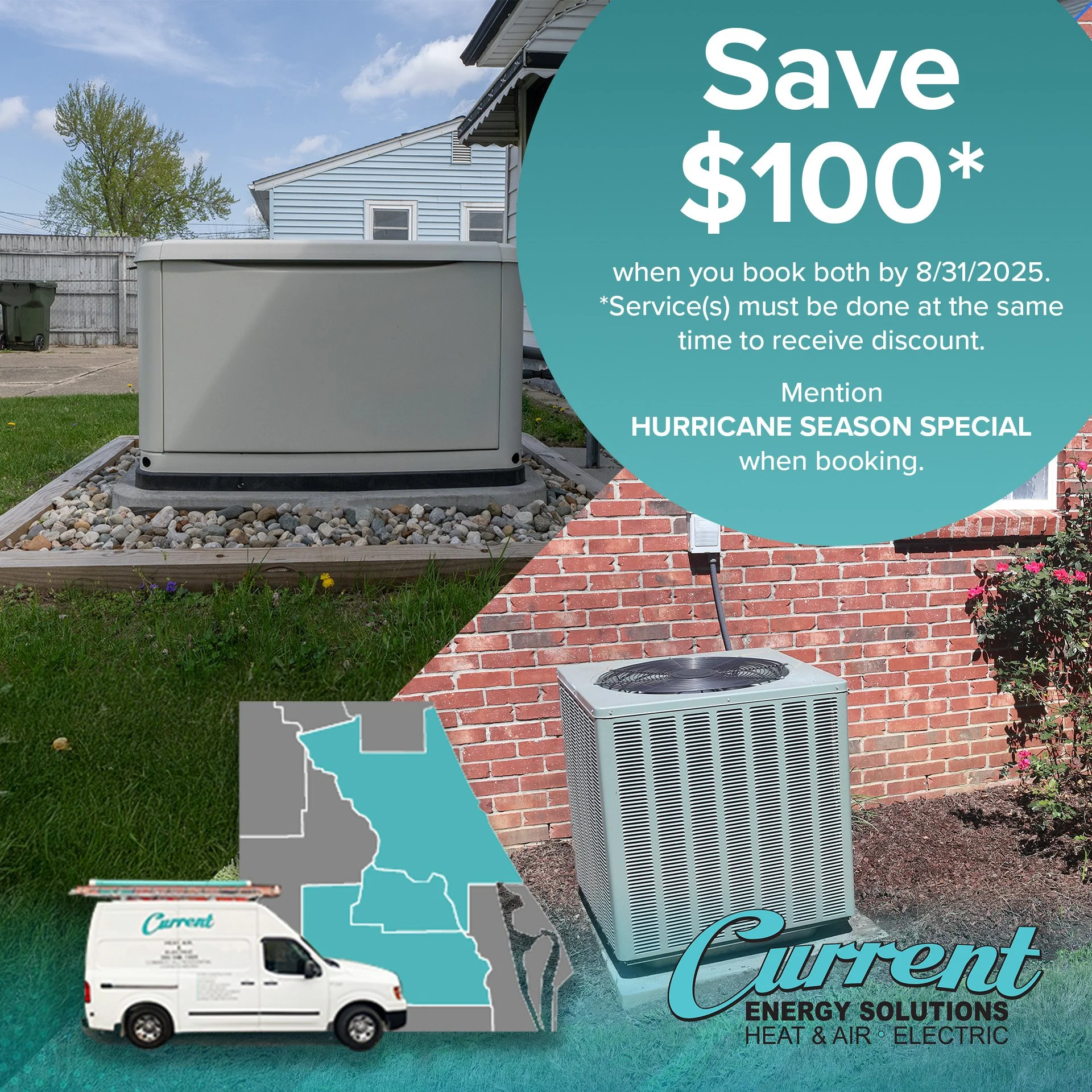5 Essential Tips to Keep Your Whole-House Generator Hurricane-Ready in Florida
Hurricane Season Special for Dual-Maintenance
When hurricane season hits Florida, a whole-house generator can be a literal lifesaver — keeping your home cool, your food fresh, and your family safe when the grid goes down. But just like any mechanical system, your generator needs regular attention to perform at its best when you need it most.
Here are five essential tips to keep your generator in peak condition, plus the warning signs that indicate it may be time for professional service.
1. Schedule Regular Professional Maintenance
Think of your generator like a car — you wouldn’t drive for years without an oil change, right?
Have a licensed technician inspect and service your generator at least once a year (twice is better during storm season).
Professional maintenance includes checking fuel lines, testing the battery, replacing filters, and running a full load test.
A service visit now can prevent costly breakdowns later — especially when the next storm is already forming.
2. Keep Fuel Fresh and Lines Clear
Stale fuel can damage your generator and cause it to fail when you need it most.
For natural gas or propane systems, have your fuel source inspected for leaks or blockages.
For diesel or gasoline units, use fuel stabilizers and refresh your supply regularly.
Always store extra fuel safely, away from heat sources, and in approved containers.
3. Clear Debris Around the Unit
Hurricane season brings wind, rain, and flying debris — all of which can obstruct or damage your generator.
Keep at least 3–4 feet of clear space around the unit.
Remove leaves, grass clippings, and yard debris.
Trim back bushes and trees that could fall onto or block your generator’s ventilation.
4. Test Your Generator Monthly
Don’t wait for an outage to find out something’s wrong.
Run your generator for 15–20 minutes once a month to ensure it powers up smoothly and runs without strange noises.
Check for visible leaks, loose wires, or worn parts.
If your generator has an automatic transfer switch, verify that it responds as expected.
5. Have a Hurricane-Season Emergency Plan
Even with a generator, you need a safety plan.
Know where your generator’s manual and emergency contacts are stored.
Teach family members how to operate the system safely.
Keep essential backup supplies on hand — like extension cords, surge protectors, and flashlights.
Warning Signs Your Generator Needs Service NOW
Don’t ignore these red flags:
Slow or failed startup during testing.
Unusual noises like grinding, popping, or knocking.
Excessive smoke or strong fuel odors while running.
Frequent shutdowns or inconsistent power output.
Dashboard warning lights or error codes.
If you notice any of these issues, call a licensed technician immediately — small problems can escalate quickly, especially during storm season.
Bottom Line
A reliable whole-house generator is one of the best investments a Florida homeowner can make, but only if it’s ready to perform when the power goes out. With regular maintenance, monthly testing, and a clear emergency plan, you’ll keep your lights on and your family safe all hurricane season long.
📞 Ready for your generator check-up?
Contact Current Energy Solutions today to schedule maintenance or learn more about installing a storm-ready generator.
Call: 386-566-1984 | Request Service Online: https://www.currentenergysolutionsfl.com/contact


